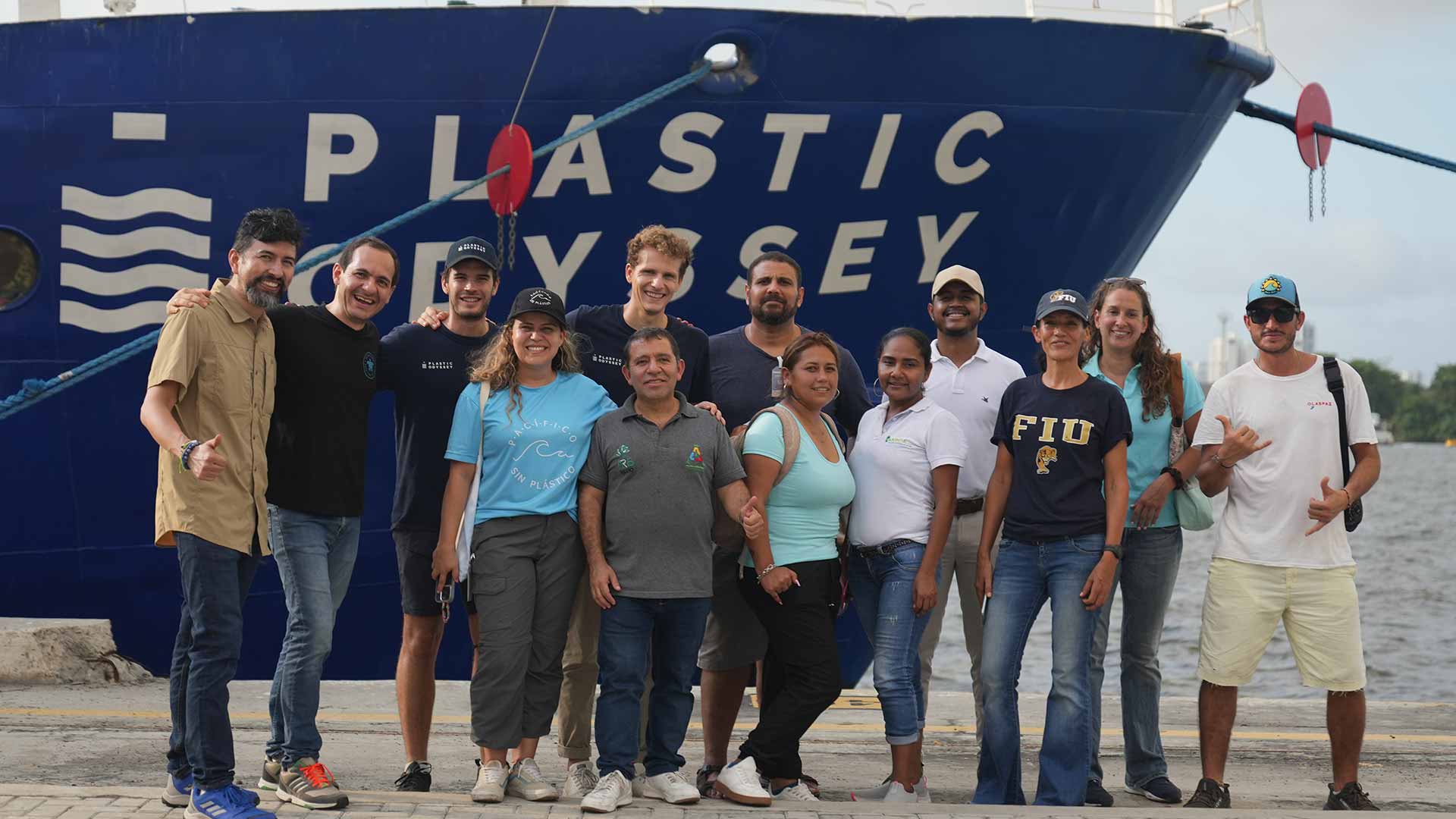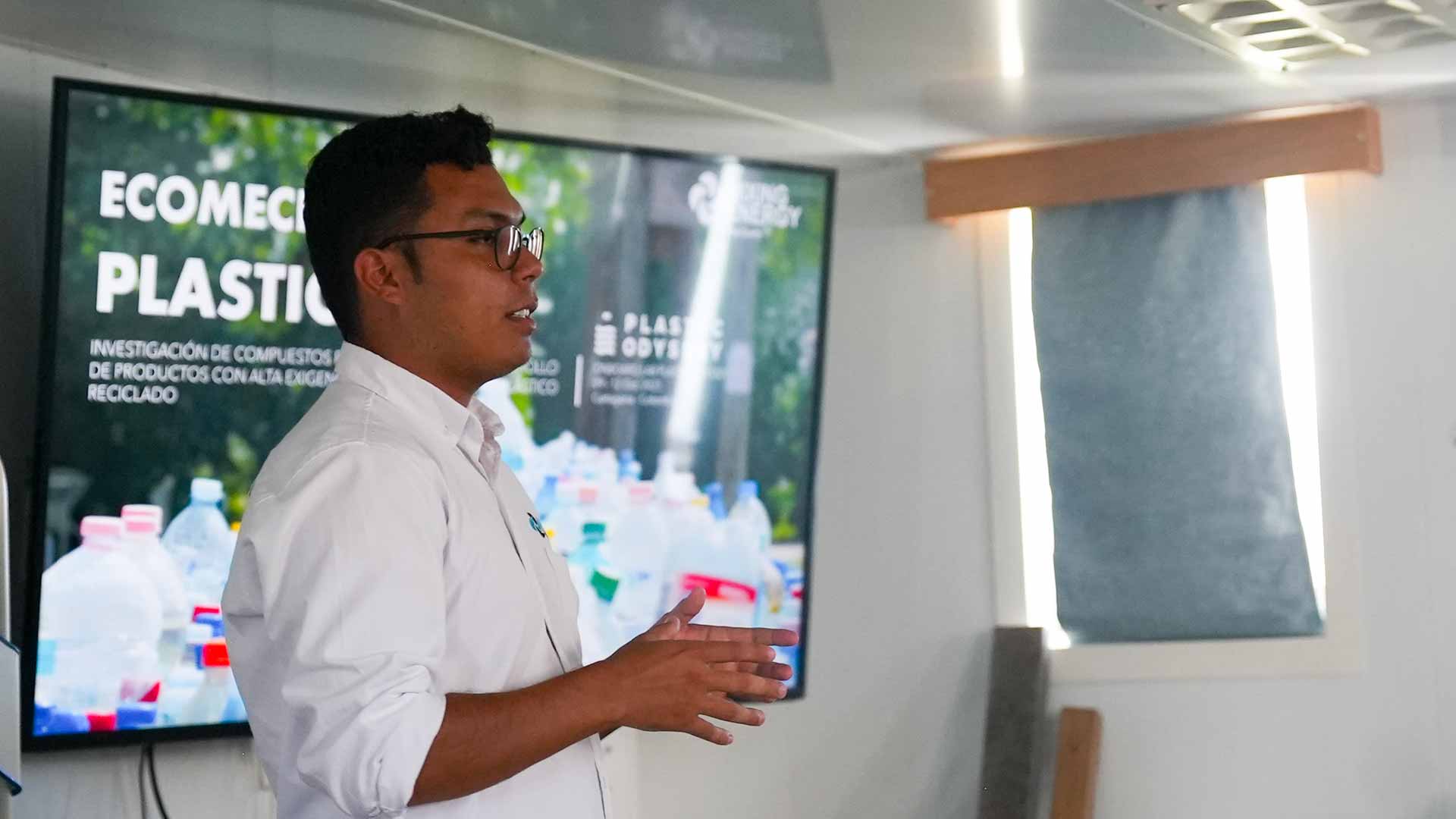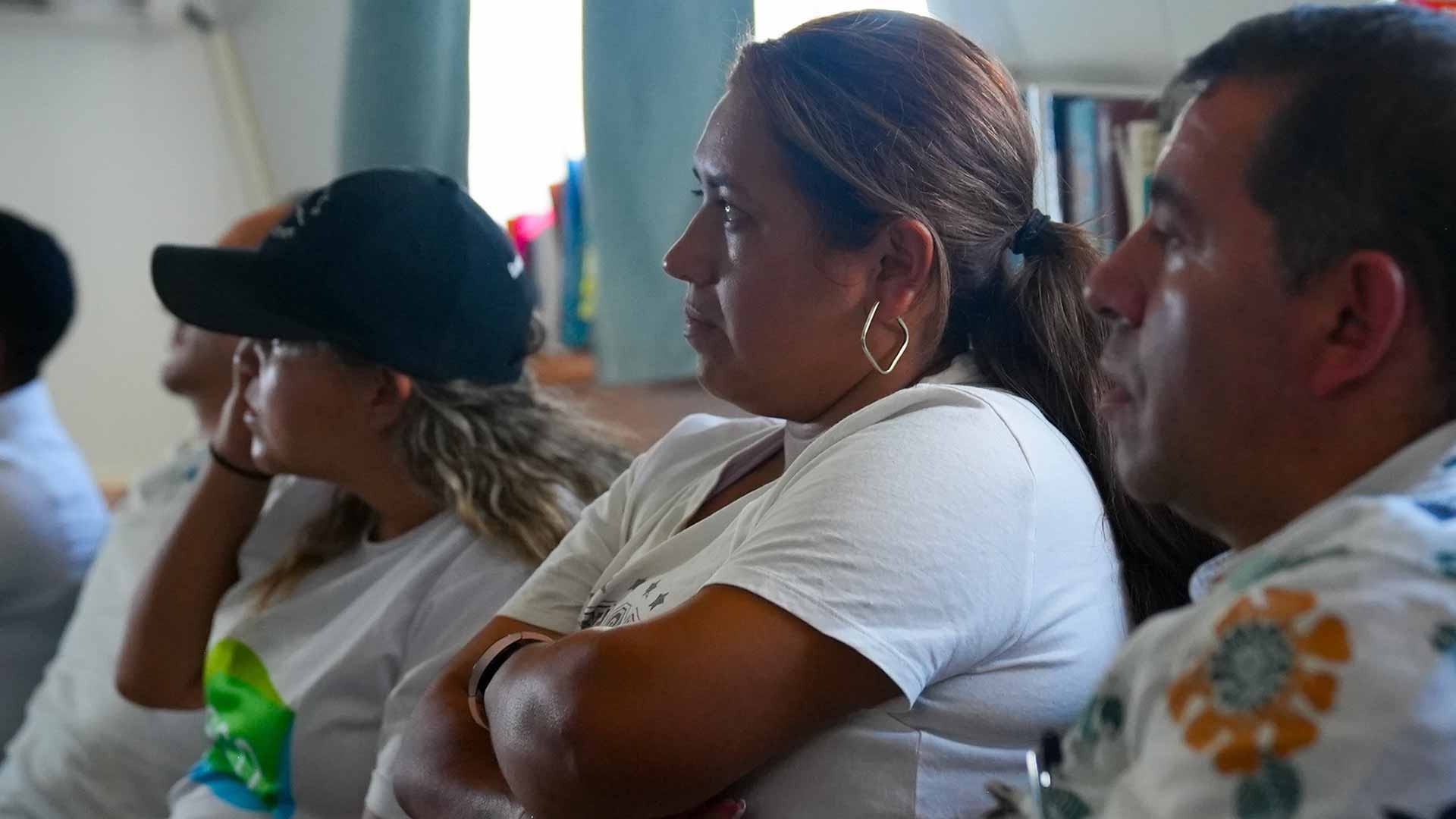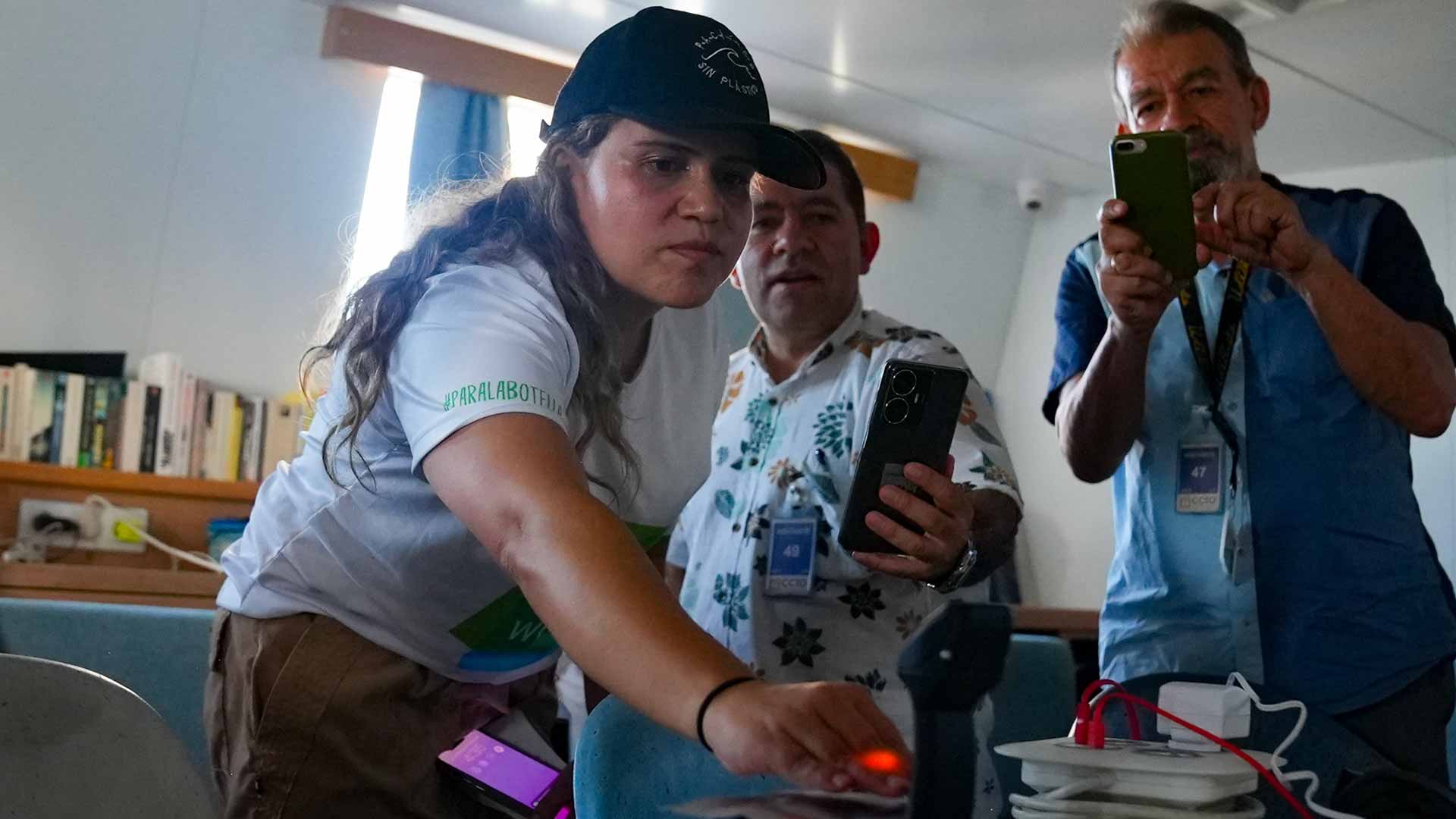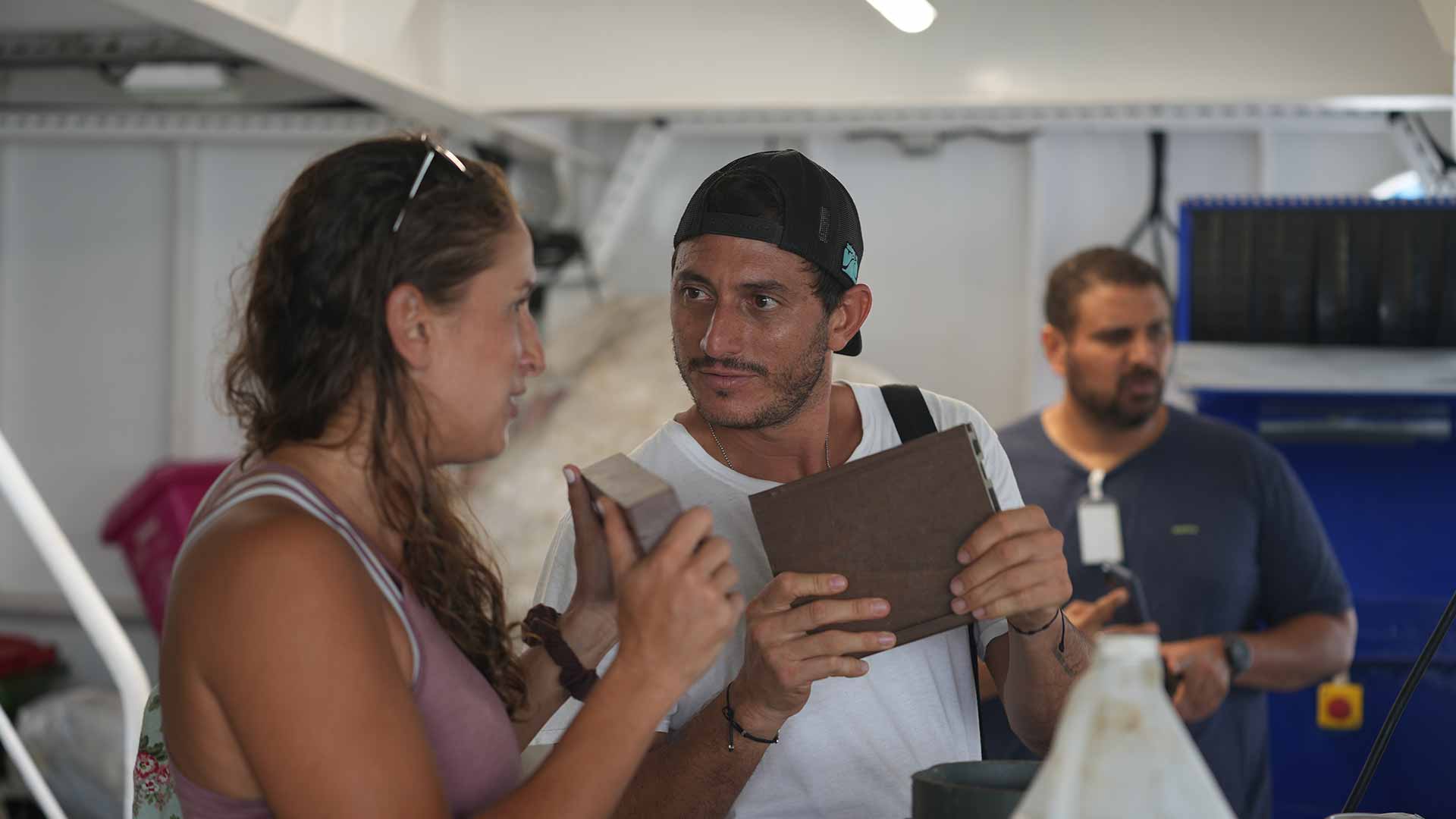
OnBoard Laboratory – Session #12 in Colombia
Colombia, the recycling hub of Central America
After an enthusiastic stopover in the Dominican Republic, attention quickly turned to Colombia as the recycling hub of Central America. However, a last-minute change of plans led us to Cartagena, located on the Colombian Caribbean coast.
Our OnBoard Lab has lived up perfectly to the expectations raised by Colombia’s reputation. We had the pleasure of welcoming on board local participants from Cartagena, as well as entrepreneurs from Bogotá, the capital, and Medellin, another major city in the country.
The participants came from a wide range of backgrounds and had in-depth expertise in their respective fields. Among them were university professors, leaders in Colombian street waste collection, bodega managers (plastic storage and processing facilities), recycling machine manufacturers and engineering consultancies.
During OnBoard Lab week, we were inspired by the testimonies of Nansel Rangel Buitrago, associate professor at the Universidad del Atlántico, who is conducting research into plastic pollution along the Caribbean coast, and Carmen Helena, an entrepreneur from Cartagena, who presented her project for transforming plastic waste into jewelry.
The week ended with a visit to Henequen, Cartagena’s recycling district. In the company of Candida Gomez, an OnBoard Lab participant and president of the ARCA association, we took a deep dive into Colombia’s unique waste management system.
Introducing the participants
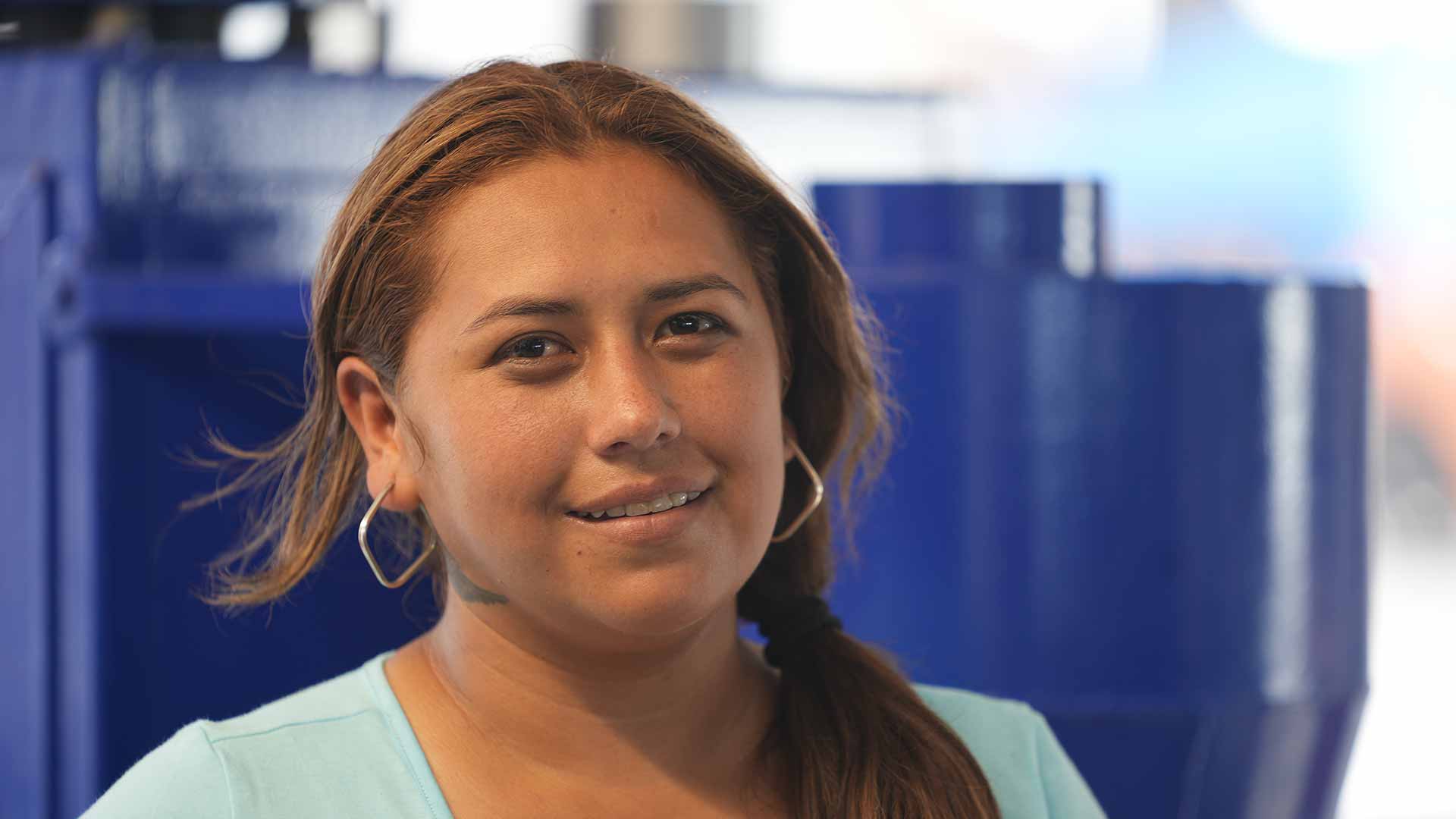
Aura Duarte Rozo – Gaiarec
In the heart of Colombia, a unique model for structuring the recycling chain has been established. Aura Duarte Rozo, head of one of these distinctive companies, has assembled a team of 650 recicladores, dedicated street collectors, to achieve an ambitious goal: the collection, processing and design of recycled plastic products.
Recicladores, true heroes of the environment, roam the streets in search of recyclable materials. They collect the plastic, sort it carefully and take it to the collection centers, the bodegas.
Indeed, an essential element of this model is the use of bodegas, warehouses or workshops, where the collected plastic is transformed into finished products. Bodegas become veritable creative laboratories, where plastic takes on new life in the form of benches, tables, bike racks and other durable items.
These recycled plastic products then find their way into a variety of places, from kindergartens to public parks to amusement parks. They not only improve the environment by reducing plastic waste, but also beautify our public spaces and make them more sustainable.
Gaiarec is a historic bodega run by Aura Duarte Rozo. Recicladores and bodegas are the key players in this environmental puzzle, and their meritorious work is praised and supported the world over.
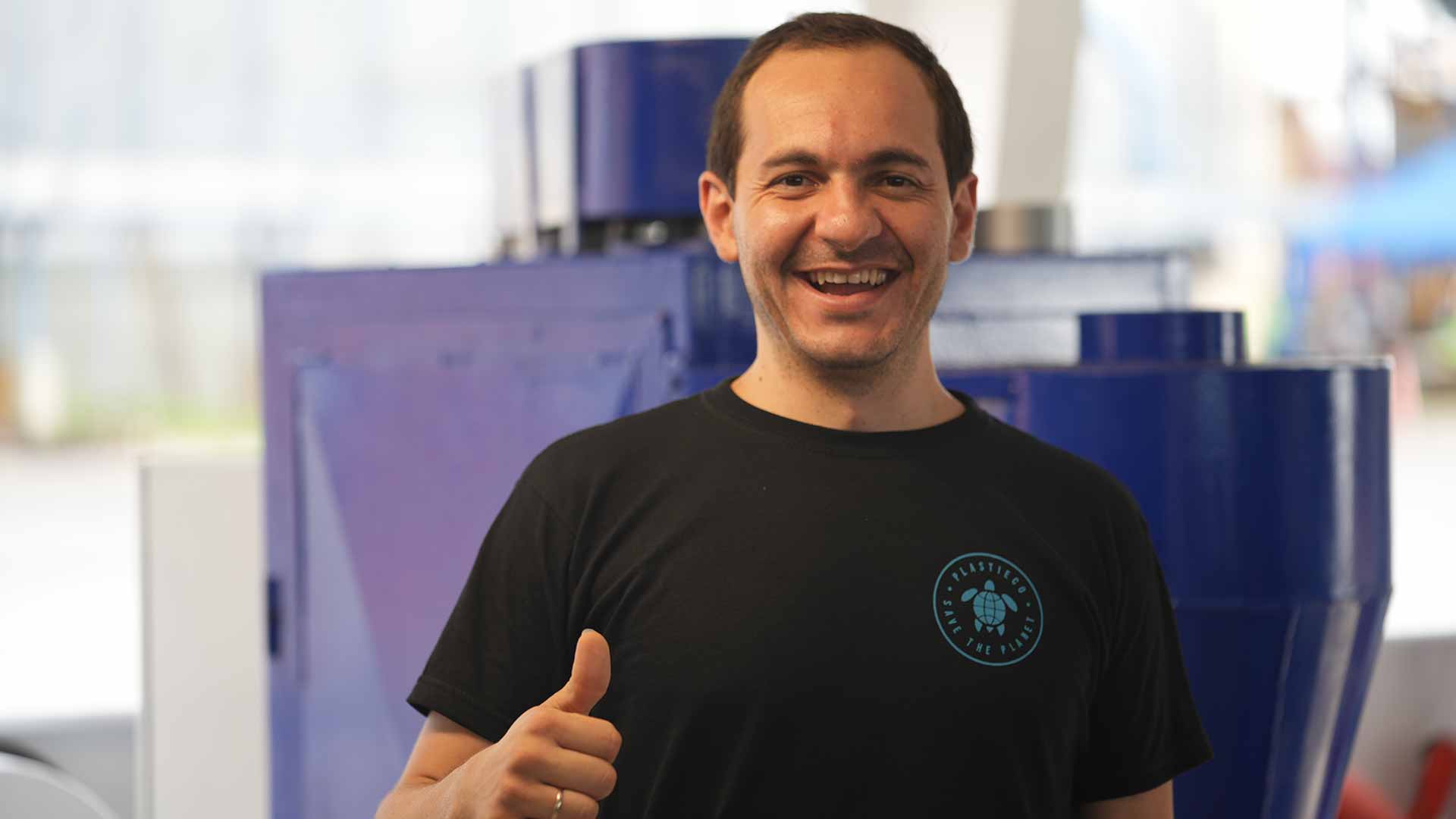
Santiago Contreras Villegas – Plastisol & Plastieco
Santiago is currently piloting two plastic waste recovery projects:
Santiago’s first project is dedicated to recovering plastic from oceans and landfills. The aim is to give new life to these materials by transforming them into fully recycled plastic packaging. A special feature of this project is the use of a special additive, originally developed in the USA, to create biodegradable packaging. The initiative aims to help reduce plastic pollution and promote the circular economy.
Santiago is also working on an innovative project called “Plastieco”. This is a mobile application designed to manage the collection of different-colored plastic bags in the city of Medellin, Colombia. The aim of this application is to connect the various players involved in the plastic recycling chain, from consumers to processors. Currently, the application is in the testing phase, mainly due to the informal nature of the city’s plastic collection system. Plastieco’s ambition is to simplify and optimize the collection process, while promoting the further processing of plastics. Currently, Santiago and his team have set up 103 collection points in Bogotá, including supermarkets and other strategic locations. Their long-term goal is to develop a network of 10,000 collection points throughout Colombia, contributing to more responsible management of plastic waste.
Following the OnBoard Lab, we were able to put Santiago in touch with Georges Bitar from Live Love Recycling, whom we had met in Beirut and who has also developed a waste collection application used by over 40,000 people.
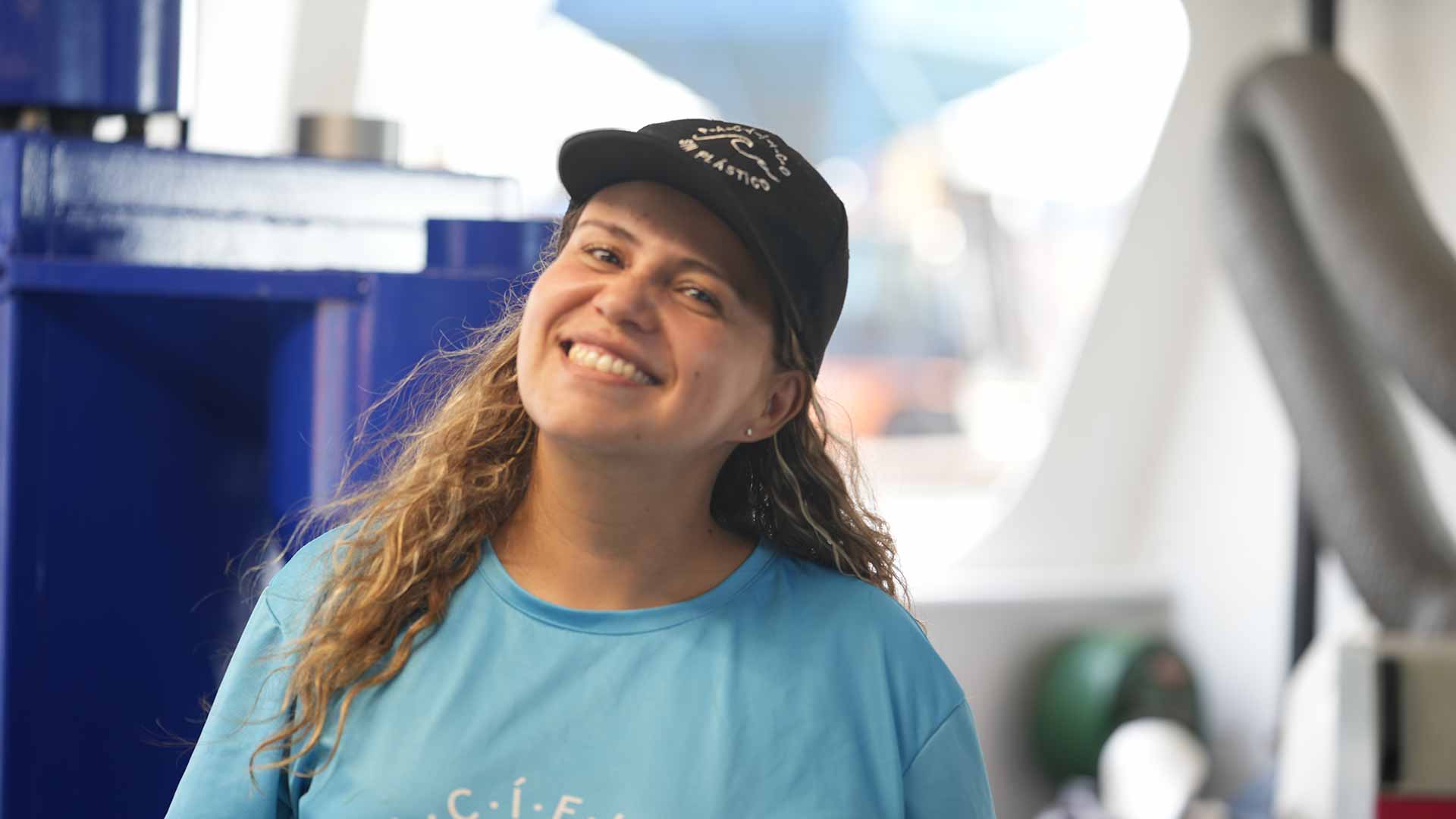
Silvia Santos – Ecoworks
Ecoworks‘ mission is to revolutionize the recycling value chain, covering the entire process from collection to transformation. This initiative began in Bogotá, but its ambitions now extend to the entire Pacific coast. The Ecoworks vision is driven by Silvia Santos, the driving force behind three key projects:
The #paralabotella project, carried out in collaboration with ARB (Association of Waste Pickers), was launched with flying colors. It has set up no fewer than 80 collection points for plastic waste. To facilitate this collection, the “recolect app” has been developed, simplifying the collection process for those involved. In a spirit of innovation and awareness-raising, Ecoworks has also initiated the “Pimp my carroza” art project, which aims to promote recycling through the creation of 300 to 400 artistic “carrozas”, turning recycling into an art form in its own right.
Another project, currently under development, aims to collect all waste from communities along the Pacific coast, which unfortunately lack adequate collection infrastructures. The fundamental aim of Ecoworks is to extend its impact to those regions where waste management services are lacking, as part of an approach that protects the environment and supports local communities.
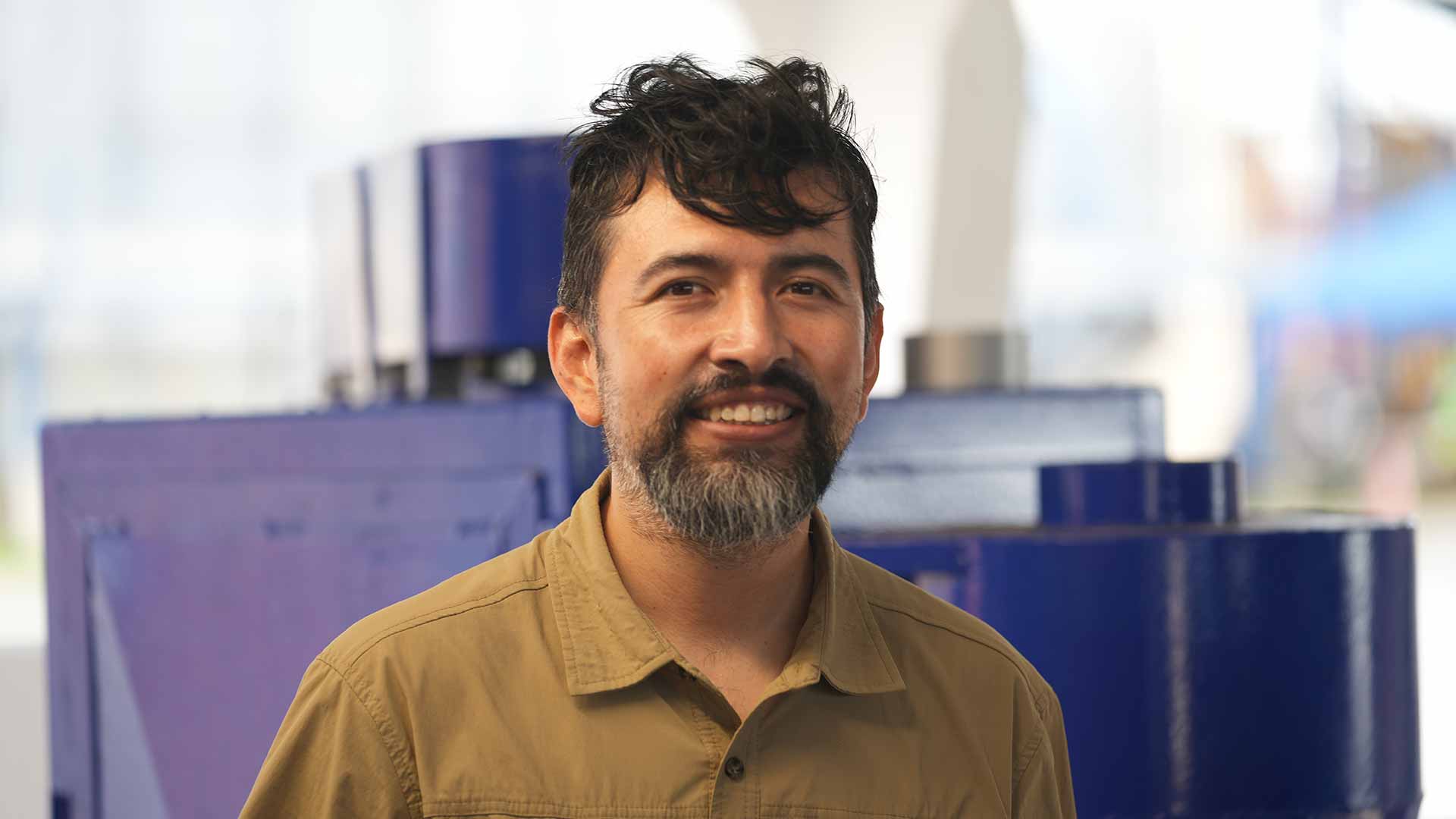
Javier Chia – Ecomodulares
Ecomodulares has a clear mission: to develop plastic processing machines to create finished products, such as pipes and molds, from plastics such as polyethylene and HDPE. Javier, who collaborated with Fermin de Capobianco, played a key role in this innovative initiative.
The idea behind this project is to replace traditional building materials such as concrete and wood with plastic planks. This substitution is not only more environmentally friendly, but also safer for workers’ health. Javier emphasizes that this approach offers companies a clear advantage.
One of Ecomodulares’ notable successes has been the construction of small plastic houses, using around 5 tonnes of AVS and polypropylene. This breakthrough paved the way for the company’s expansion into several South American countries, including Colombia, Bolivia, the Dominican Republic, Chile, Ecuador and many others, demonstrating the scope of their impact in the region.
Javier passionately shared his knowledge of plastic recycling, from the technical aspects to the construction and dimensioning of projects. Post-consumer waste, industrial waste, wire, solid waste, sanitary or clean waste, Ecomodulares has an impressive customer portfolio, thanks to which they have developed a unique know-how.
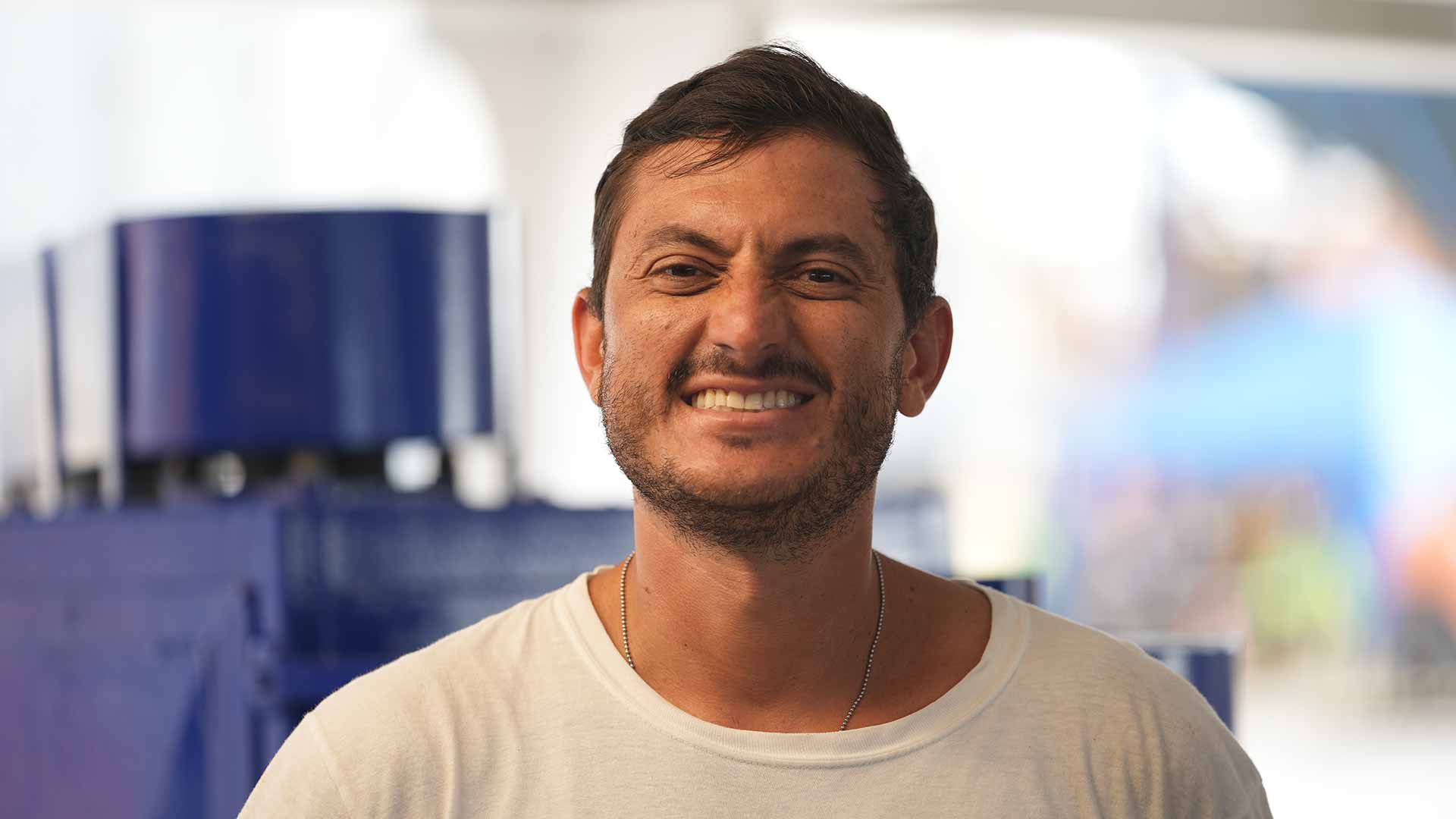
Pedro Salazar – Olaspaz
The Olaspaz project uses a shredder and a Precious Plastic injection molding machine to recycle plastic. They’ve found an ingenious way to use surfing as a motivator for young people, encouraging them to continue their education by offering free surfing lessons to those who stay at school. Their sports facilities, located on the beach, are at the heart of their environmental approach.
For over 8 years, Pedro has organized beach clean-ups with the Amigos del Mar foundation, involving sportsmen and women and recycling much of the waste collected to make surf fins. In addition, the community has a plastic bank where residents exchange plastic caps for household appliances, creating a unique local circular economy system. They also enable residents to make purchases using plastic, helping to promote an environmentally-friendly lifestyle on Tierra Bomba.
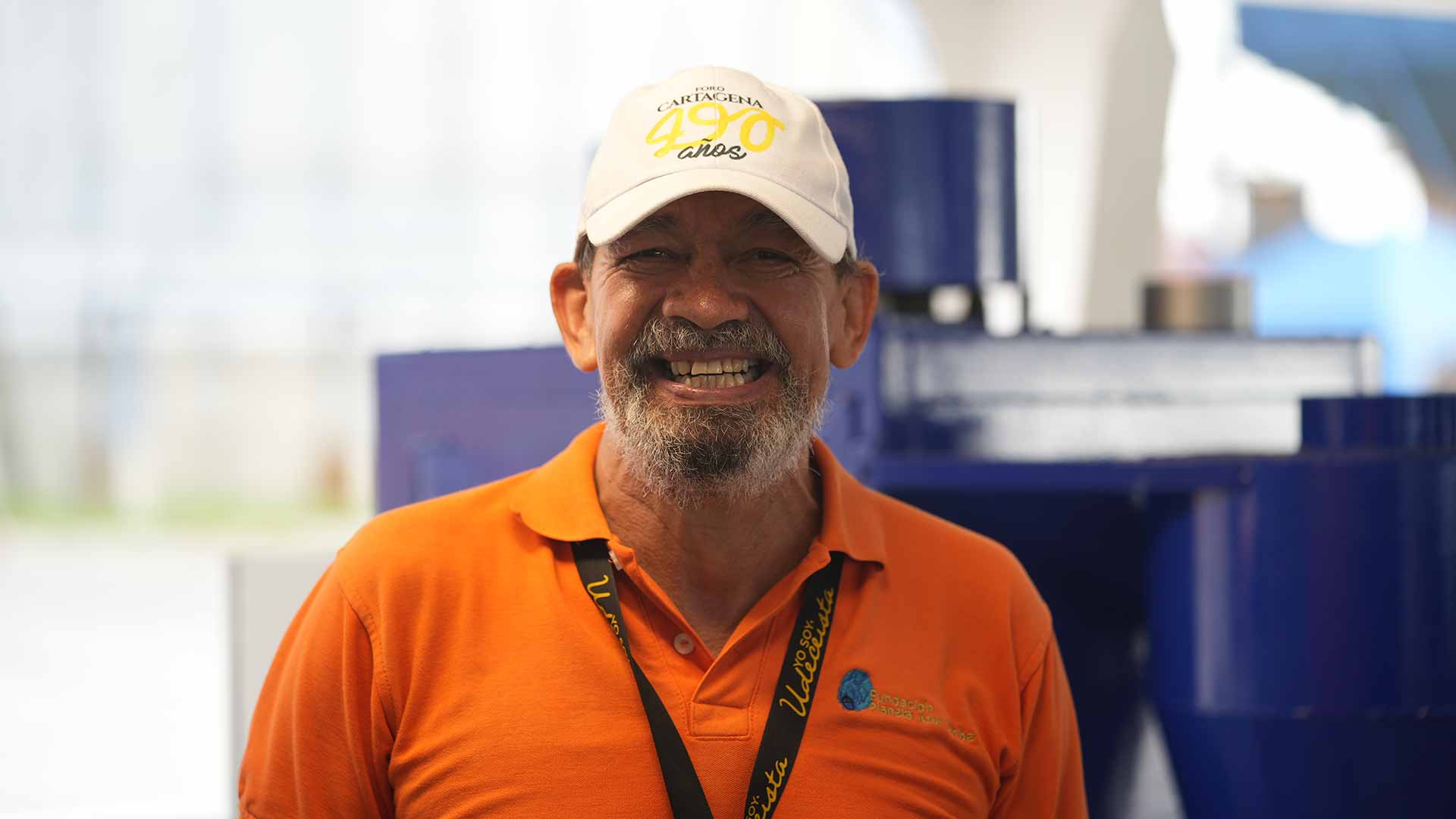
Luis Fernando Sanchez Rubio – Planeta Azul Caribe
The Planeta Azul Caribe Foundation, founded in 2015 by Cartagena-based university professor Luis Fernando, has a history rooted in environmental research and action. His initiative aims to set up a complete cycle, including an educational program to raise awareness of plastic pollution, manage waste and enhance ecosystems and biodiversity.
Among his projects is the creation of plastic planks for the construction of boats to link Cartagena’s three distinct zones, traditionally isolated from each other, using the under-used river. The foundation works closely with a number of players, including COTECMAR, Esenttia, the Collection Center, and Banque de la République, which handles waste-related impact studies.
The business model proposed by the foundation, called TRIADA, brings together professionals, communities and businesses in a holistic approach to promoting environmental sustainability while fostering local development.
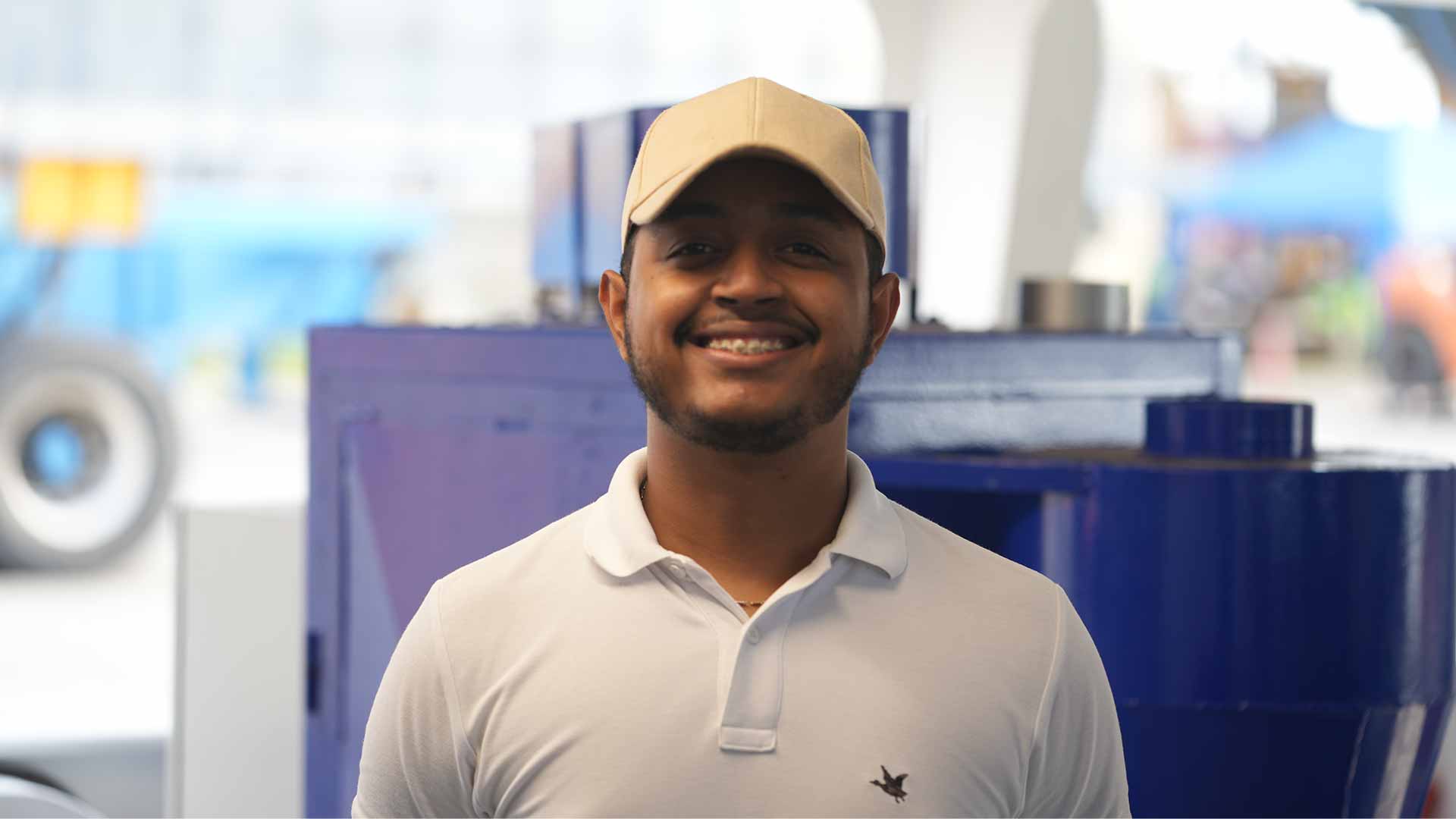
Rubén David Ditta Pérez – Mixingenergy
Mixing Energy, founded by Robert and Ruben in Cartagena, is a consulting firm specializing in sustainable development solutions. With six employees, it was created just eight months ago. One of its projects is to develop expertise in mechanical testing of recycled profiles. Their aim is to design recycled plastic parts for Cartagena’s major industries and businesses, while offering comprehensive solutions to reduce waste.
Mixing Energy is not currently involved in the production of finished products, but is positioning itself as a source of sustainable engineering expertise for companies concerned about their environmental footprint. Their imagined range of parts includes tube sections, laminates, coatings and blocks, all of which contribute to the transition to a more environmentally-friendly economy.
A key aspect of their approach is to make tourists aware of the potential environmental impact of their visit to Colombia. This initiative reflects their commitment to promoting more sustainable and responsible practices in a region heavily influenced by the tourism sector.
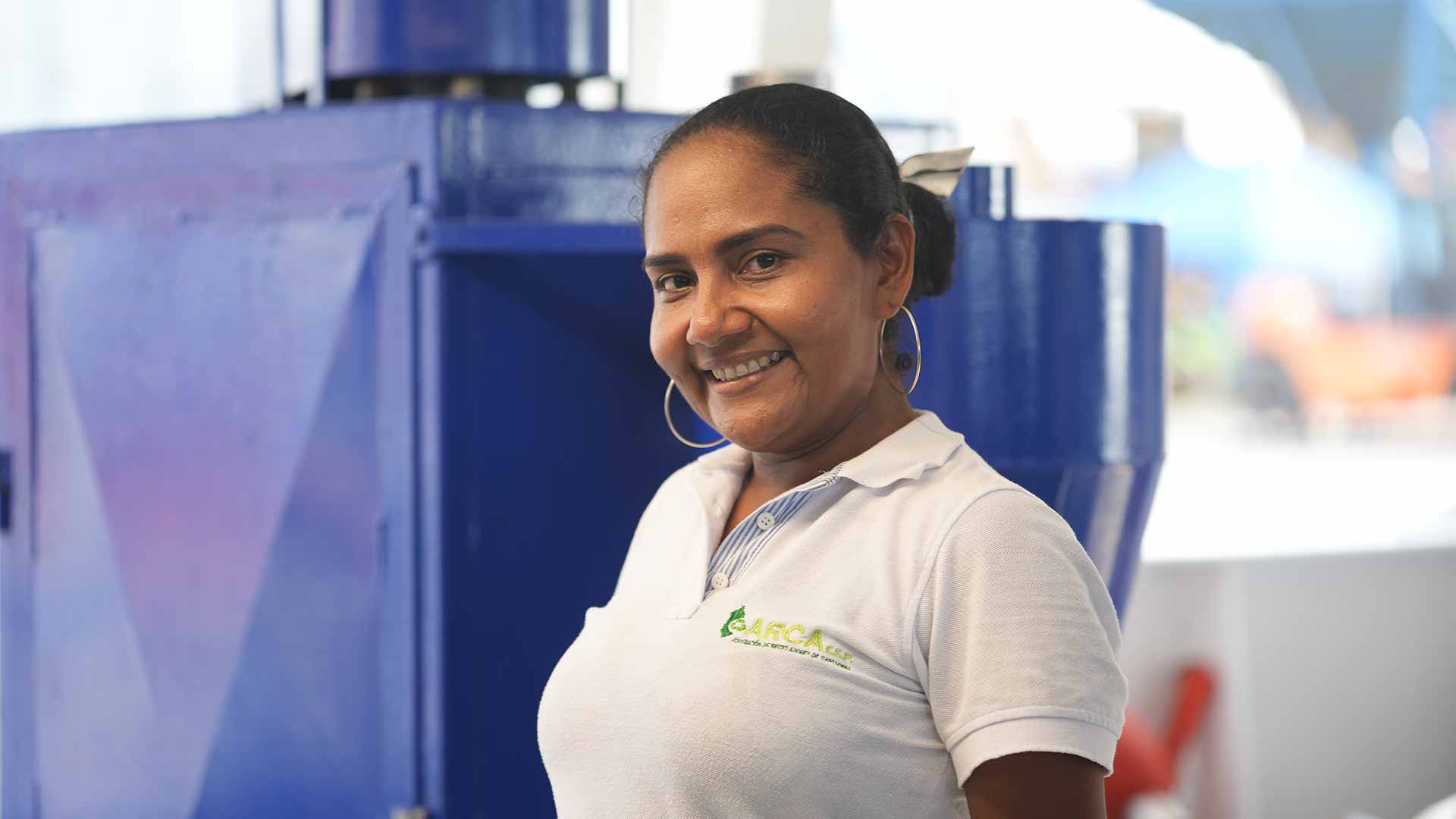
Candida Gomez – ARCA
The ARCA cooperative, based in Cartagena’s Henneken district, came into being in 2014 as a grouping of collectors, the “recicladores”, and companies specializing in plastics processing. Its key role is to represent over 350 collectors and 15 bodegas, 4 of which are specifically dedicated to plastic processing, while the other 11 lack the necessary equipment for this crucial stage.
ARCA is already having a significant impact, with over 2,000 people benefiting from its recycling services, contributing to the transformation of 345 tonnes of plastic. Their main aim is to increase plastic processing capacity and enable the 11 craft businesses to acquire machinery to boost their recycling activities.
In addition, ARCA has an interesting project proposal to create white plastic bags from recycled materials, following the example of Santiago in Medellin, Colombia. This initiative reflects their commitment to recycling and reuse, and could have a positive impact on the environment and the local economy.

OnBoard Laboratory, our incubation program for recycling entrepreneurs
At each stopover on the expedition, the Plastic Odyssey vessel welcomes on board several local recycling entrepreneurs to exchange ideas and develop concrete solutions to combat plastic pollution.

